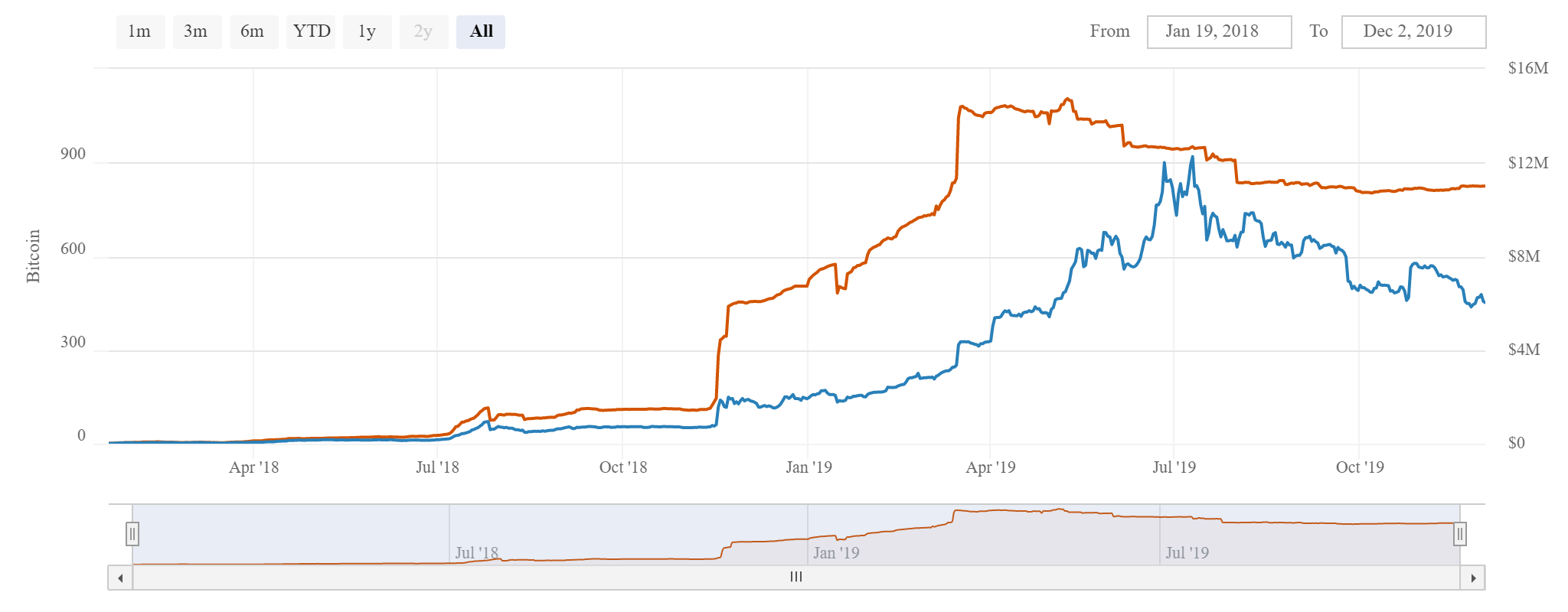A crypto enthusiast who lost four Bitcoin on the Lightning Network in October has now managed to recover most of the missing funds, according to an update post on Reddit.
What is the Lightning Network?
One of the most interesting projects in the cryptocurrency space, in my opinion, is the Lightning Network protocol (LN).
Even though some traders and analysts have plenty of criticisms regarding the development of the LN, I argue the open-source P2P payment channel technology is here to stay.
The LN not only affects Bitcoin, but the technology can also gap bridges between projects.
In a way, the Lightning Network has the potential to achieve what many other projects can only dream of: to become an interoperable protocol between blockchains.
At the moment, the platform consists of over 10,000 nodes, 35,000 open channels, and over 850 BTC in network capacity.
The Lightning Network is gaining traction

As discussed in this article, the Lightning Network is a payments channel linked to the Bitcoin network, and is also being developed for use with other cryptocurrency projects such as Litecoin.
Instead of relying on hard forks to upgrade transaction storage per block (block weight), the LN allows for the integration of off-chain payment state channels between nodes.
The LN creates direct off-chain connections between nodes instead of validating all information on the main chain. These connections are opened up by storing Bitcoin on a Lightning channel.
In the graph above, we can see the amount of BTC being stored in Lightning channels, courtesy of bitcoinvisuals.
It is true that the LN had a major spike in adoption in late 2018 and then stabilised around the summer this year. However, in my opinion, this correction is directly linked to lower BTC/USD volumes, which fell over 50% in the same time span.
Just recently, crypto exchange Bitfinex announced it is launching support for the Lightning Network. It therefore seems that the P2P payments protocol is gaining traction by the day.
So what happened to the four Bitcoins that were lost in October?
How did the funds get locked?
The problem occurred as a result of a bug in a recently implemented functionality called SCB — Static Channel Backup.
SCB is quite important to avoid users losing funds due to hardware problems.
Let’s say you have some channels open with local-balance committed, so your BTC is locked in an open channel. Without SCB, you run the risk of losing these funds in the event of a hard-drive failure or the VM crashing.
Terrible issue, right? The LN developers agree, which is why they developed the SCB functionality. However, this implementation had just been released in April 2019. As it was brand new, some issues can be expected.
Even one of the main LN developers, guggero, wrote on GitHub when replying to the user regarding the “buggy” SCB implementation:
“Yes, you are right. That’s why there still is a -beta suffix in each version that we release.”
Essentially, the user’s Bitcoin got locked in a closed channel thanks to SCB as it hadn’t been updated correctly.
How were the funds unlocked?
After looking at the main discussion issue on GitHub, one of the contributors explained what the user had to do.
Simply put, the user had to let the nodes run for a while in order to find the missing outputs. Afterwards, they only needed a quick sweep to find the coins.
“Let it run – for a week or two if it needs to. There’s a lot of scanning your node has to do. Watch your logs, your listchaintxns and closedchannels, and see what happens, if you like. Because every now and then, it should find a closing transaction that it needs to sweep funds from.”
Guggero concluded that there’s still around 3.7 BTC that should be claimable by the user’s node, so it seems that most (if not all) of the lost funds have eventually been recovered.
Disclaimer: The views and opinions expressed by the author should not be considered as financial advice. We do not give advice on financial products.
